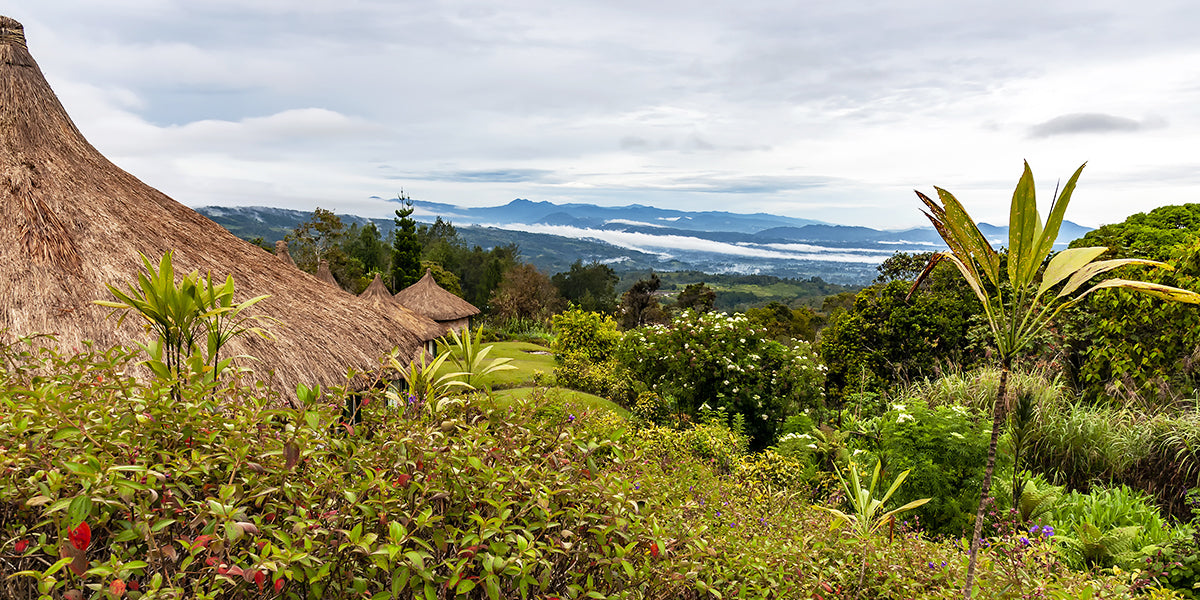Organic Papua New Guinea
- In stock, ready to ship
- Backordered, shipping soon
This organic coffee from Goroka on the "Highlands Highway" of Papua New Guinea is bold and satisfying. This coffee is a smooth and notably sweet coffee with a medium body and creamy mouthfeel. The initial taste reflects browned butter and caramel and ends with a dark and fruity, but remarkably clean finish.
Although Papua New Guinea Goroka is an Indo-Pacific coffee, it separates itself from the others in nearly every way. The most distinct difference is that the coffee from Papua New Guinea is wet processed and not wet hulled like other coffees from similar regional varieties. The difference in processing creates a cup with a very different flavor and body, a developed sweetness is prominent and earthy, vegetal flavors from these beans are rare and are usually due to poor processing or drying.
Coffee was first introduced to Papua New Guinea in the early 1900s, brought by the Germans and the British to sell to the Australian market. Once Jamaican typica was introduced, commonly known as Blue Mountain, coffee really took off in the region! Now coffee is grown on small plots, known as gardens, that serve individual communities and grow not only coffee but all kinds of food for the community as well! This organic lot comes from various smallholder farms that work on farms about 0.25 to 4 hectares on average.

















